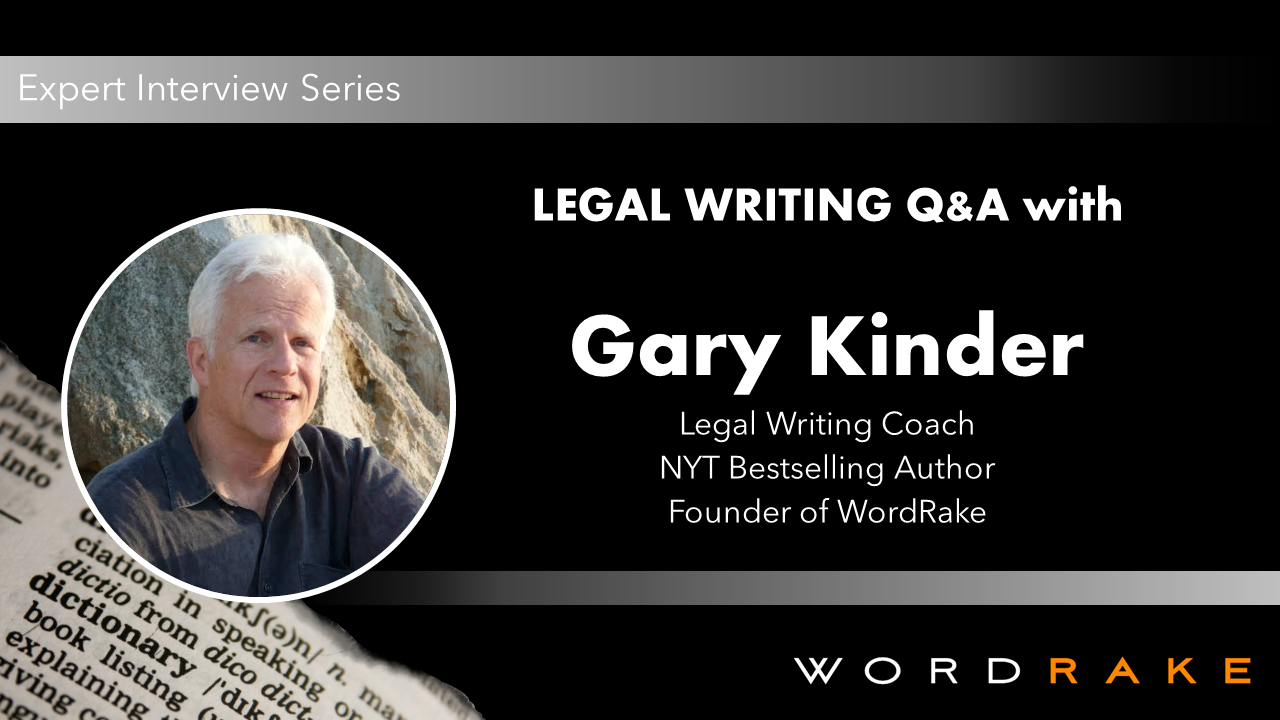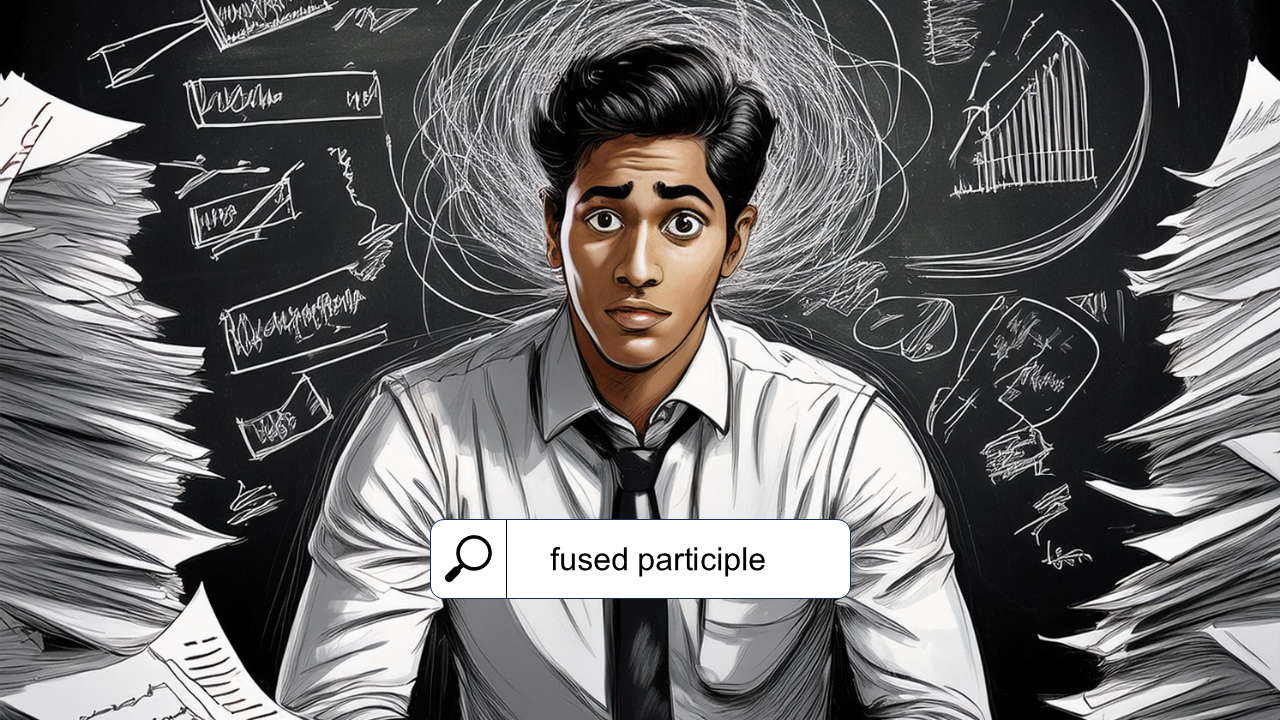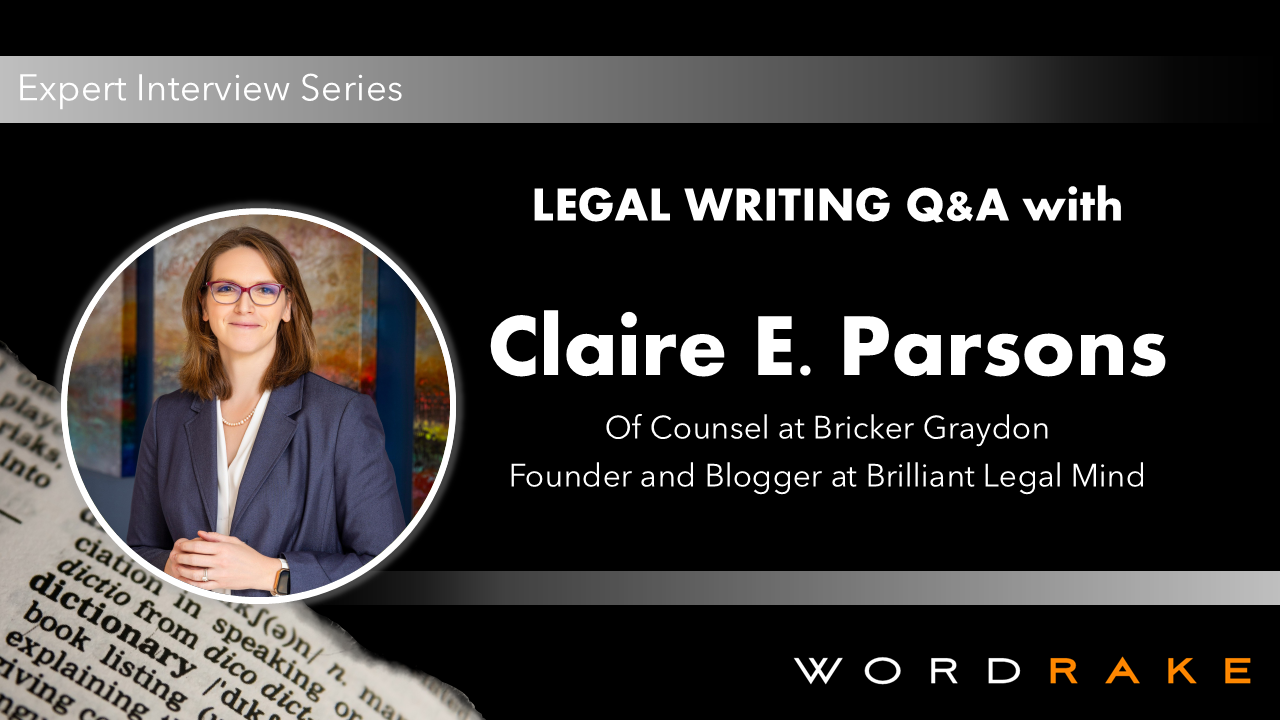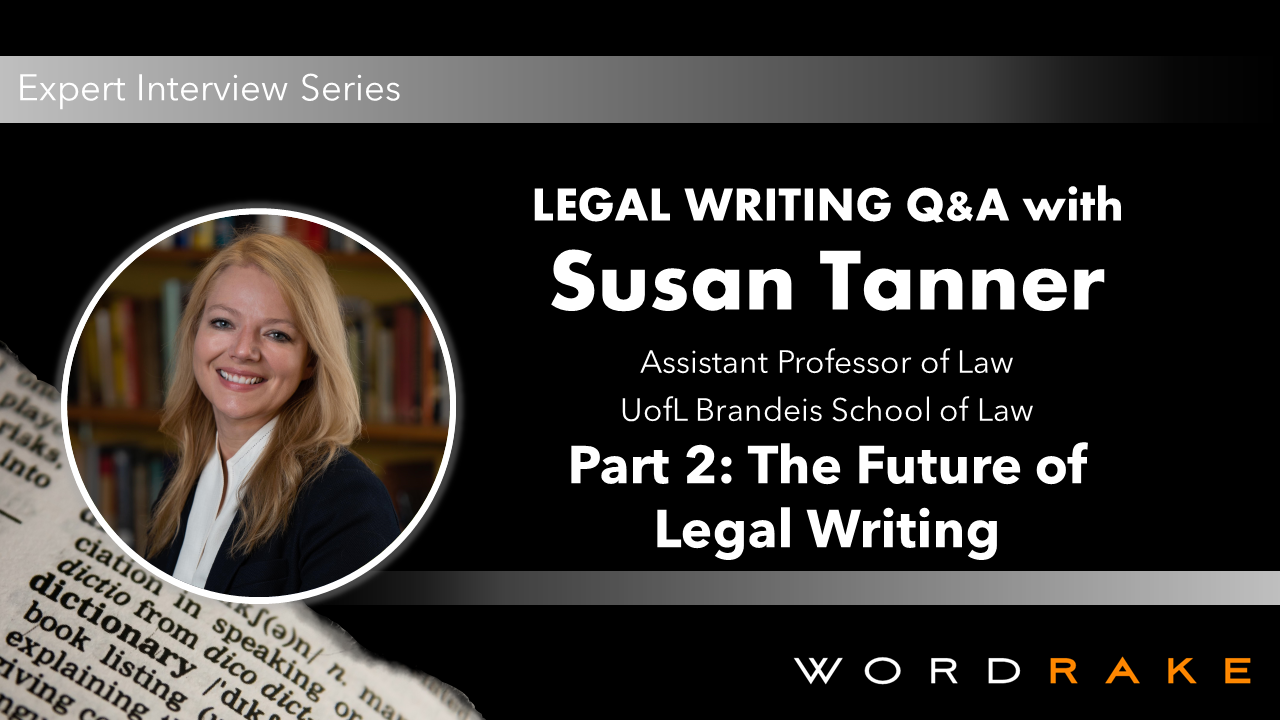After years of teaching legal writing courses, Gary Kinder noticed a pattern in the mistakes people were making. Once he noticed, he knew there had to be a way to make editing for clarity and brevity quicker and easier, freeing writers up to do more detail oriented editing. We asked him about how he came to create WordRake, and he shared the story with us.
What is your role and how did you get to where you are today?
After law school, I did not want to practice just yet. I passed the Florida bar, briefly taught Legal Writing at the University of Florida, then headed West to see snow. I worked as a bellman in the Sun Valley Lodge, tried cases one day a week as the county’s assistant prosecutor, and sold my first article to a national magazine. One cold January night, while working the front door of the Lodge, I met the wife of a famous novelist, who introduced me to her husband, who introduced me to a New York agent, who turned me over to his son, who was just beginning his career representing authors. He sold my first book to a New York publisher, and he is still my literary agent.
Continue reading













